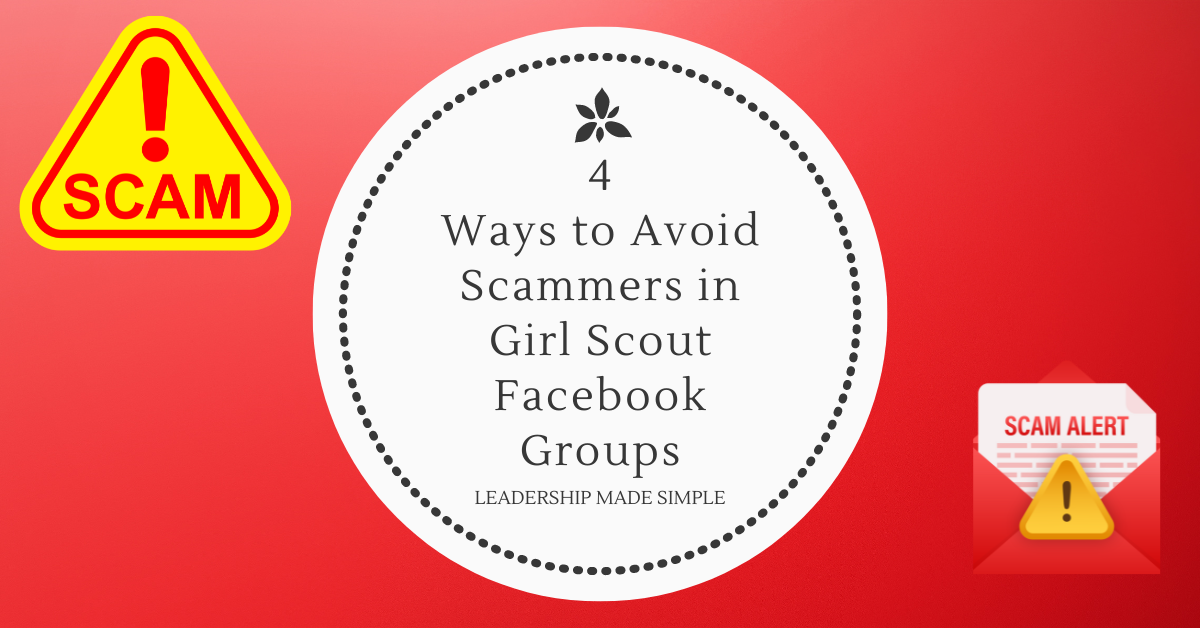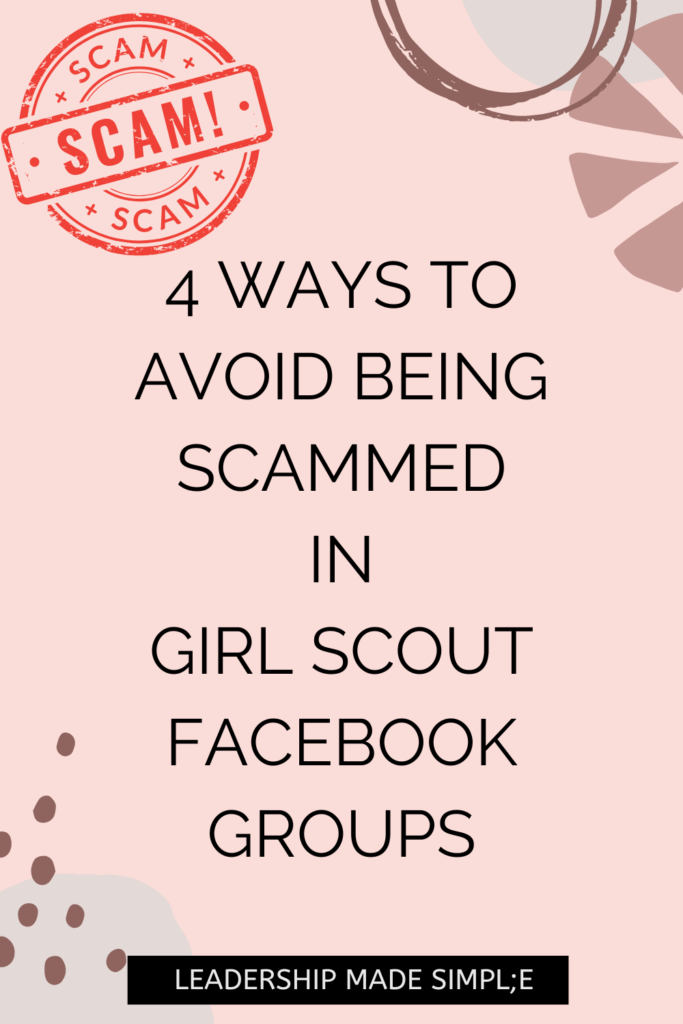It’s a shame that a few rotten apples spoil the experience for the honest and fair leaders in the group. Here are four ways to avoid getting scammed in the Girl Scout Facebook groups.
It happens every once in a while. Someone will post in multiple Girl Scout Facebook groups about having an item for sale. A leader makes the purchase, and then never receives the item.
Then the leader makes a post about not receiving the item, and then several more leaders share that the same thing happened to them from the same poster. Many times, they have done the same thing in other groups as well. The admins of the Girl Scout Facebook group ban them, but the damage has already been done.
Oftentimes, the scammer will create a new profile and repeat the offense until they eventually give up.
It makes leaders feel upset with themselves and if they paid via PayPal Friends and Family, they are their troop are out the money. The experience gives them a bad taste in their mouths and they say they will never buy anything in the group again.
This is sad, and it is also preventable.
Buying and Selling in Girl Scout Facebook Groups
I have been buying in these groups since 2014. I wrote an in depth blog post back in 2018 on this topic. These groups help fill a void. People want to earn discontinued Girl Scout badges and it is much more cost effective to do so. Leaders do not want to pay the large shipping fees the GSUSA charges for a handful of badges. Oftentimes, badges can be mailed in an envelope with a stamp.
4 Ways to Avoid Being Scammed in the Girl Scout Facebook Groups
Scammers prey upon the fact that as a whole, leaders are a trusting group. Many have never bought in niche groups before, so they just buy items without thinking. They are excited to be purchasing a hard to find item at a reduced cost.
Here is how to avoid being scammed.
Pay Via Goods and Services
It is my experience that leaders hold on tightly to every penny the girls earn. They want to spend it wisely. However, there are times when not paying the extra 75 cents is going to hurt you.
Both PayPal and Venmo have a “Goods and Services” feature. By paying the fee (which you can calculate at an online PayPal fee calculator like this one), if something happens to your item, you are protected. You will get your money back. The scammer gets reported and they will probably be banned from the site.
This is especially true when items are being mailed in a stamped envelope, something that does not have tracking. Don’t be penny wise and pound foolish…always pay the fee.
Seller Insists on Paying via Friends and Family
If a seller only wants you to pay with PayPal or Venmo Friends and Family, and will not accept Goods and Services, do not make the deal. You will lose your money if this person turns out to be a scammer. PayPal and Venmo offer the buyer no protection with this form of payment. Again, pay the fee!
Seller Sends Repeated Messages the Same Day and is Aggressive
Another red flag is the seller sends repeated messages in a short period of time to you about making the purchase. If someone is that money hungry, do not purchase from this seller. They want to get your money and run away with it.
Ask Sellers to Take a Picture of the Stamped Envelope or Package
Once you have paid, ask the seller to take a photo of the stamped envelope or padded mailer with the label on it. This provides proof that the item was ready for mailing and it also gives you a chance to make sure that your envelope is addressed properly. For the seller, it is proof that the item was sent.





